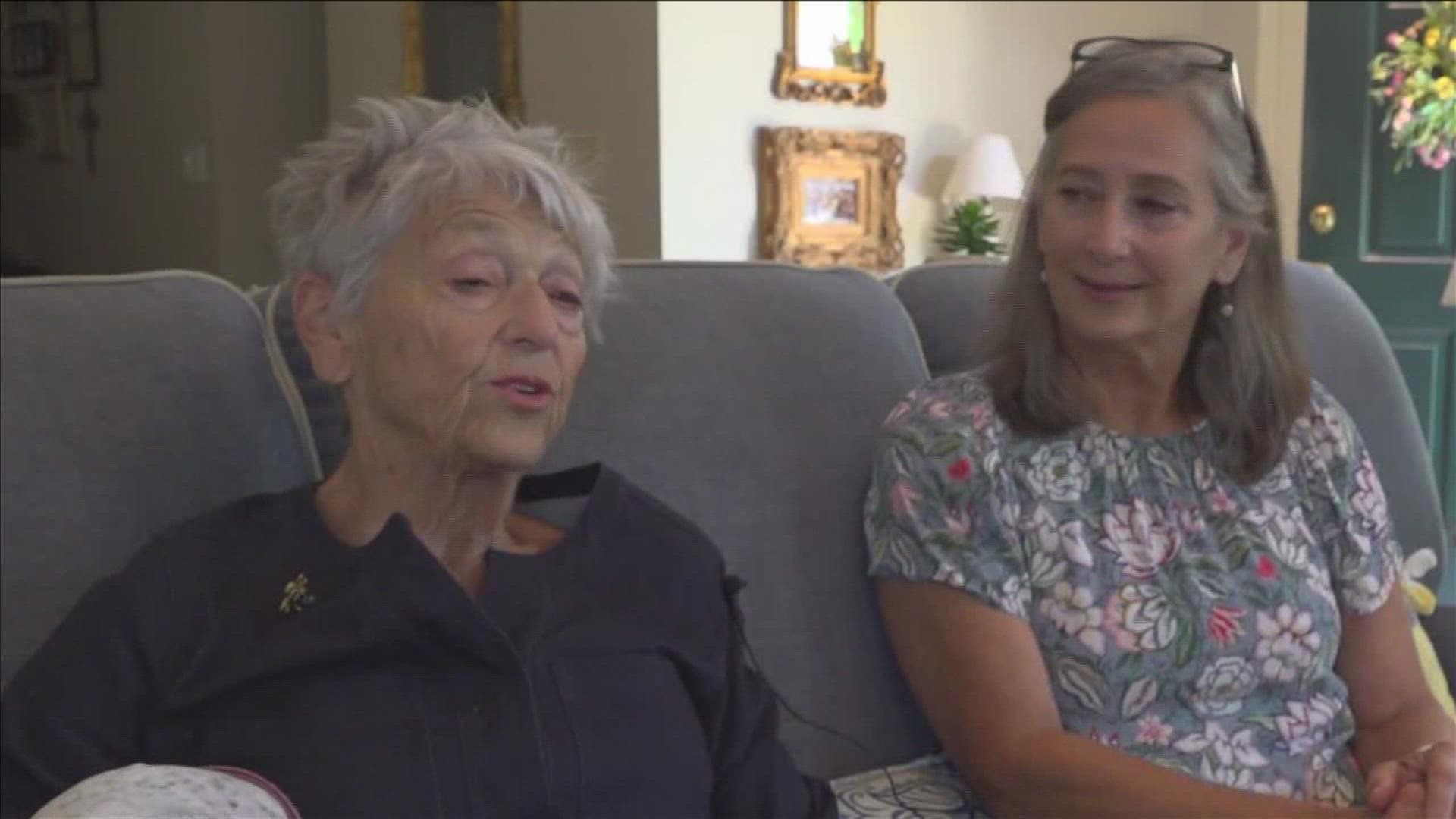COLLIERVILLE, Tenn. — Update:
Regions Bank Media and Public Relations Manager Jeremy King reached out to ABC24 on July 5 to detail their guidelines for customers experiencing a scam.
"Our bankers in branches across the 15 states where we have branches are trained to ask a series of questions about where the wire is going and what the purpose of the wire is for and we have to listen to the answers to the customer to help us evaluate the transfer and depending on their answers to help us advise of whether this may be a fraudulent situation," King said. "It's crucial for any customer to provide accurate truthful information when the banker asks the questions that they are trained to ask."
Greenslade, one of Davis' daughters, said the person her mother completed the transaction with at the bank only asked one question. "That was to whom the transfer was going and she replied it was to 'a friend' which is what the scammer told her to say," Greenslade said.
"Ultimately, we follow the customers request based on the information that they give us and once a transfer is completed, there's often not much that any bank could do to get the funds back depending on the recipient and that's why that conversation that takes place in the branch is so crucially important," King said.
King said customers who believe they were not properly asked the series of questions to prevent a scam can speak with a manager in person at the bank and it's best to be honest regarding the entire situation.
"Get in touch with local management, speak with people open and honestly and have a discussion about what sort of record there may be about questions that were asked - provide your feedback to the company," King said. "Banks are here to listen to their customers and banks are here to receive all sorts of feedback on processes or on questions or concerns about transactions."
Greenslade said no one has reached out to her mother - the victim of the scam, herself - who has Power of Attorney, or one of her sisters who is on the account. The teller's signature is the only bank employee on the wire transfer request, however, Regions Bank did not say there specifically must be additional signatures on the transfer.
Greenslade said on June 30, she sent an email to the person in security who she has been speaking with and has not received a response from him since then.
King encourages Regions Bank customers to go to their fraud prevention site to learn how to avoid various scams.
Original story:
Wendy Davis, 82, is trying to do the right thing and Catherine Greenslade, one of her daughters, is trying to prevent the same scam from happening to others.
A few weeks ago, Wendy received an email from who she thought was Geek Squad, confirming her bill renewal amount of $321 – but that was far overpriced.
She called the number included in the email and was told to click on the attachment, type in $100 and she would receive $100 back, but the $100 turned into $10,000 and suddenly the person on the other end of the line was yelling at her, telling her she took $10,000 from them – in reality, they took nearly that much from her.
“The scammer made her feel like it was all her fault – that somehow she had sucked $10,000 out of the Geek Squad accounts,” Greenslade said. “In addition to that, they kept showing me my balance – my balance kept popping up that showed $10,000 was added to my account.”
“$9,160 … that’s many trips to the dog groomer,” Wendy Davis said.
Catherine said if the email was really from Geek Squad, it would have addressed her by name.
“I got an email. It’s an email from the Geek Squad, I do have the Geek Squad and they were charging me,” Davis said.
Another red flag was the phone number included in the email and the request to click on the attachment.
“She called me to tell me what happened and I’m like mom let’s look up the Geek Squad’s phone number because they shouldn’t have given you a phone number to call in an email and then an attachment to click on,” Greenslade said. “So I looked up the phone number and I said they’re in Minneapolis, they’re not In Bangkok, Thailand.”
But over $9,000 had already been wired to the Thailand account she was instructed to pay.
“An elderly woman goes into the bank and says I want a $10,000 dollar wire transfer for a friend in Thailand,” Greenslade said. “Where is the due diligence there? That sort of seems like banking 101.”
Although it may seem like a clear protection for banks to ask follow up questions or have multiple people sign off on a wire transfer, not all banks have these protections.
The Better Business Bureau encourages people to be aware of being asked for wire transfers specifically.
“Anytime a business on the phone wants you to wire money anywhere, especially to somewhere that you don’t know that’s gonna be a scam as well,” Daniel Irwin said.
Since the incident, Davis has moved banks but is still hoping to get her money back.
As of now, she hasn’t gotten a lawyer involved but said because of the large amount of money. Greenslade said the bank did begin an investigation on Friday, June 24 but the family has not received any updates on the investigation since then.

